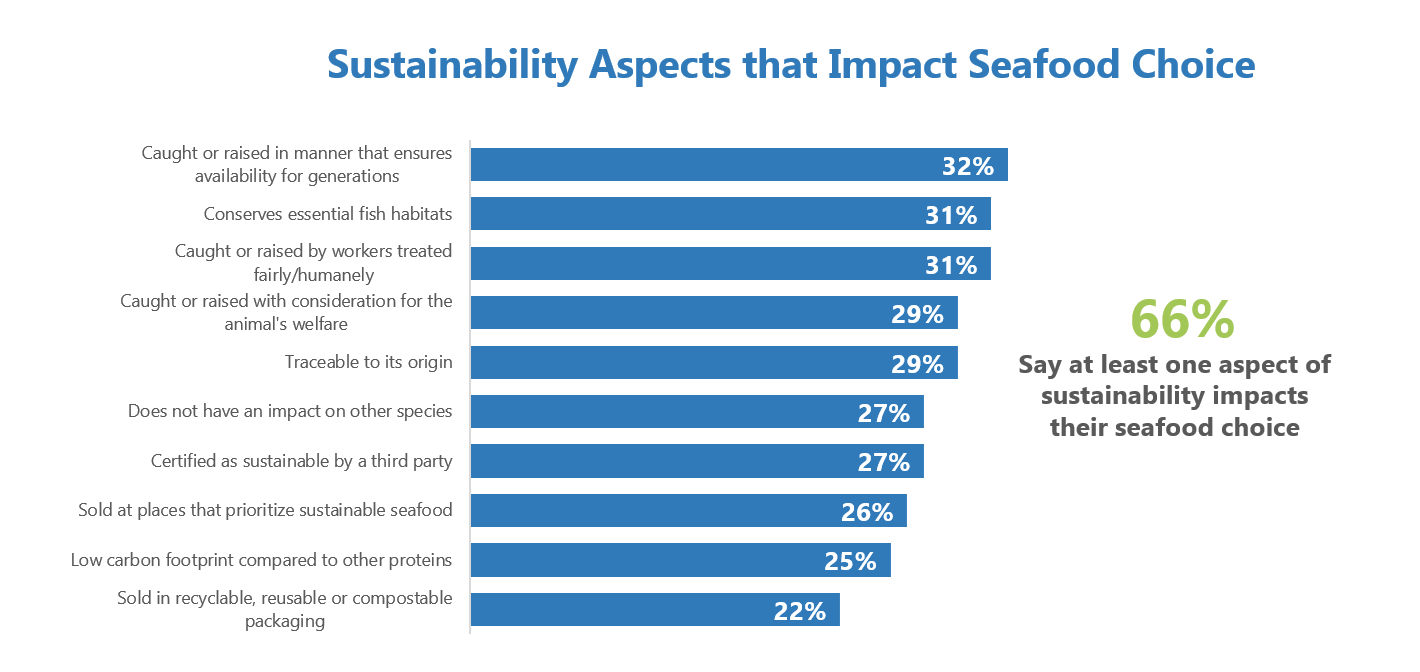This is the initial installment in a new FMI blog series on sustainability in the food industry. This series will share compelling research and cover aspects ranging from consumer perspectives to industry opportunities.
By Andy Harig, Vice President, Tax, Trade, Sustainability & Policy Development, FMI

Every so often it’s a good idea to remind ourselves why sustainability is important to the food industry. Focusing on sustainability is certainly the right thing to do for the environment. Moreover, in recent years many shoppers have relayed more interest in sustainability — in areas ranging from packaging to food waste — and they expect food stores and brands to share their values and show commitment to addressing these issues.
Despite high inflation and overall economic uncertainty this year, FMI’s latest data shows sustainability remains consistent as an important factor influencing shopper decisions. The consumers most likely to be interested in sustainability are highly desirable shoppers for the food industry, as they spend more on groceries online and overall according to FMI’s U.S. Grocery Shopper Trends research. The industry needs to be aware of shopper perspectives and prioritize commitments to enhance sustainability strategies.
Getting a Read on Shopper Attitudes
Close to a third of food shoppers say they choose to shop at stores that prioritize sustainability, according to FMI’s 2023 U.S. Grocery Shopper Trends report focused on the Value Matrix. Looking at this another way, the research found that more than 30% of shoppers say that recycling/sustainability efforts and practices are among the most important attributes in their choice of a primary store.
How Sustainability Works into the Value Equation
At a time when value has become more important to consumers, sustainability is playing a role in defining contemporary perceptions of the term, according to Trends.
There’s a few things involved in getting good value. You have the idea of price and affordability, getting more for your money. You also look at good quality — if it is healthier, made with sustainable materials, is healthy and delicious. Getting really cheap products, yes, you haven’t spent a lot, but you get what you pay for, and if you’re getting a product for the cheaper amount, the quality might be compromised.
Shopper Motivations Not One-Size-Fits-All
Shoppers who relay interest in sustainability are part of a diverse group in terms of their lifestyles and perspectives. For some their sustainability focus is tied to perspectives about ethics.
My wife is vegan, so she also cares about ethics and sustainability. She has an app she uses that tells her which products were more ethically produced.
Eyeing Many Aspects to Sustainability
Concerns about sustainability can show up in any department of a grocery store. For example, our 2023 Power of Seafood report found that many seafood shoppers show interest in the issue. Almost one-half of these shoppers (47%) said their seafood store’s commitment to sustainable or environmentally responsible seafood is the primary (14%) or a very important (33%) reason in their decision about where to purchase items in this category.
However, perceptions around sustainability can involve many different product attributes, and shoppers vary in which ones are important to them. About two thirds of seafood shoppers (66%) point to at least one aspect of sustainability that impacts their seafood choice, from how the fish is caught to the impact on fish habitats.

The Food Industry is Making Progress
This is not just about responsible manufacturing and retail. A substantial consumer interest in sustainability, especially from younger shoppers, has made it an important business issue.
Our research shows that a majority of food retail and supplier companies are responding by having quantified goals and implementation time frames for sustainability strategies. These include food waste reduction, energy use reduction, package waste reduction and responsible sourcing. The industry isn’t just talking about sustainability, but is also taking action.
Continuing the Discussion and Driving Success
All this helps explain why FMI has identified rising ESG expectations as one of our key imperative issues, alongside other important topics, including supply chain disruption, workforce challenges and technology transformation.
We plan to continue the sustainability discussion through this blog series. You’ll hear more from me and other FMI subject matter experts as we illuminate different angles on the topic. Our goal is to help the food industry make more informed business decisions and enhance progress.


 Industry Topics address your specific area of expertise with resources, reports, events and more.
Industry Topics address your specific area of expertise with resources, reports, events and more.
 Our Research covers consumer behavior and retail operation benchmarks so you can make informed business decisions.
Our Research covers consumer behavior and retail operation benchmarks so you can make informed business decisions.
 Events and Education including online and in-person help you advance your food retail career.
Events and Education including online and in-person help you advance your food retail career.
 Food Safety training, resources and guidance that help you create a company food safety culture.
Food Safety training, resources and guidance that help you create a company food safety culture.
 Government Affairs work — federal and state — on the latest food industry policy, regulatory and legislative issues.
Government Affairs work — federal and state — on the latest food industry policy, regulatory and legislative issues.
 Get Involved. From industry awards to newsletters and committees, these resources help you take advantage of your membership.
Get Involved. From industry awards to newsletters and committees, these resources help you take advantage of your membership.
 Best practices, guidance documents, infographics, signage and more for the food industry on the COVID-19 pandemic.
Best practices, guidance documents, infographics, signage and more for the food industry on the COVID-19 pandemic.
